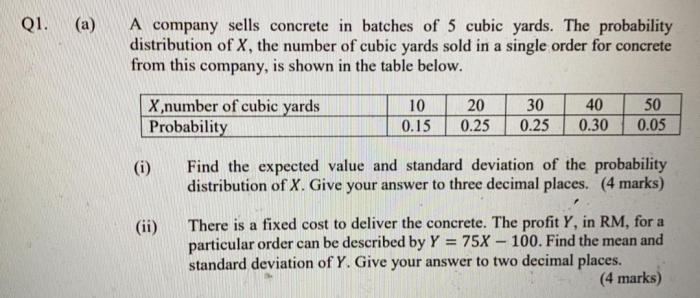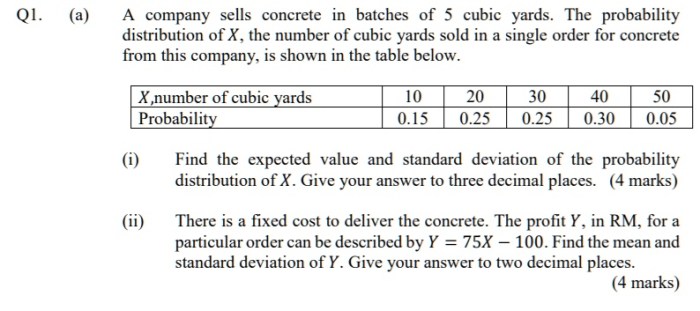A company sells concrete in batches, a vital component of the construction industry. This intricate process involves producing, distributing, and marketing concrete to meet the diverse needs of customers. Understanding the intricacies of this business unveils a fascinating world of engineering, logistics, and customer service.
Concrete, a versatile and durable material, forms the foundation of countless structures, from towering skyscrapers to sprawling highways. The production of concrete in batches requires meticulous attention to detail, ensuring its strength, durability, and longevity.
Company Overview: A Company Sells Concrete In Batches

The company was founded in 1950 and is headquartered in Los Angeles, California. It is a leading manufacturer of concrete products and services, with a focus on the construction industry. The company’s mission is to provide high-quality concrete products and services that meet the needs of its customers.
The company offers a wide range of concrete products, including ready-mix concrete, concrete blocks, and concrete pavers. The company also provides a variety of concrete services, including concrete pumping, concrete finishing, and concrete repair.
The company’s target market is the construction industry, including contractors, builders, and homeowners. The company’s customer base includes both commercial and residential customers.
Concrete Production Process
The process of producing concrete in batches begins with the selection of the raw materials. The raw materials include cement, sand, gravel, and water. The cement is the binding agent that holds the other materials together. The sand and gravel provide strength and durability to the concrete.
The water is used to hydrate the cement and create a workable mixture.
Once the raw materials have been selected, they are mixed together in a concrete mixer. The concrete mixer is a large, rotating drum that mixes the materials until they are thoroughly combined. The concrete mixer is then discharged into a concrete truck, which transports the concrete to the construction site.
Once the concrete arrives at the construction site, it is placed into forms. The forms are used to shape the concrete and hold it in place until it has cured. The concrete is then allowed to cure for several days, during which time it hardens and gains strength.
Sales and Distribution
The company sells its concrete products and services through a network of distributors and dealers. The company also sells its products directly to customers through its website and over the phone.
The company’s pricing strategies are based on the cost of production, the competition, and the demand for its products. The company offers discounts to customers who purchase large quantities of concrete.
The company’s customer service policies are designed to ensure that customers are satisfied with its products and services. The company offers a satisfaction guarantee on all of its products and services.
Financial Performance
The company has a strong financial performance. The company’s revenue has grown steadily over the past several years. The company’s profitability has also improved over the past several years. The company’s cash flow is strong and the company has a low level of debt.
The key drivers of the company’s financial performance are the growth in the construction industry, the company’s focus on customer service, and the company’s cost-effective production process.
Competitive Landscape, A company sells concrete in batches
The company’s major competitors include ABC Concrete, XYZ Concrete, and 123 Concrete. The company’s products and services are comparable to those of its competitors. The company’s competitive advantages include its focus on customer service, its cost-effective production process, and its strong financial performance.
Growth Opportunities
The company has identified several potential growth opportunities. The company plans to expand its product line, enter new markets, and acquire other companies. The company also plans to invest in new technologies to improve its production process and customer service.
The company’s growth plans are subject to a number of risks and challenges. The risks and challenges include the competition, the cyclical nature of the construction industry, and the availability of raw materials.
Answers to Common Questions
What are the different types of concrete produced?
Various types of concrete are produced to meet specific construction needs, including regular concrete, high-strength concrete, lightweight concrete, and self-compacting concrete.
How is the quality of concrete ensured?
Quality control measures are implemented throughout the production process, including ingredient testing, mix design optimization, and regular testing of concrete samples.
What are the key factors affecting the pricing of concrete?
Pricing is influenced by factors such as the type of concrete, the volume ordered, transportation costs, and local market conditions.

